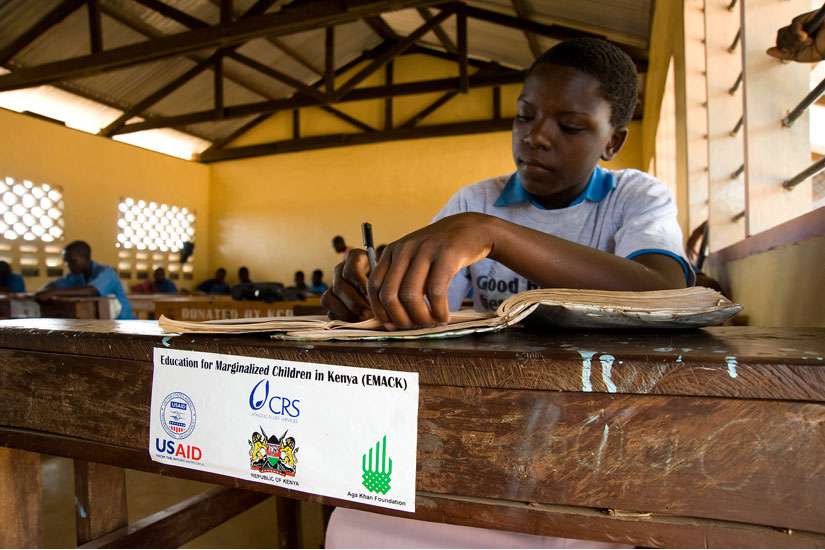A report released March 3 by the Population Research Institute and the Lepanto Institute contends CRS implemented a federal President's Emergency Plan for AIDS Relief program, Healthy Choices 2 for older teenagers, which included the distribution of condoms and contraceptives, and that CRS conspired with the federal government to cover up its involvement.
"CRS' implementing partners used two out of the four sections (in the Healthy Choices 2 curriculum) — those two which were appropriate and in accordance with Church and CRS doctrine — and did not use the other sections, as they were deemed inappropriate," said a CRS statement issued March 3 in response to the report. "The conscience clause allows CRS to remove and not implement any portions of larger work to which we have a moral objection," the statement added.
PEPFAR's protocols include a conscience clause allowing faith-based agencies like CRS to redesign curriculums so that they do not violate the sponsoring denomination's teaching. CRS said its redesigned program was approved by the Kenya Conference of Catholic Bishops.
As for the cover-up claim, CRS said the federal Centers for Disease Control and Prevention "made an error in a report, incorrectly listing CRS as involved in a program related to contraception. We asked the CDC to correct their mistake on the report, which they did. The PRI/Lepanto claim that asking the CDC to correct their error constitutes a cover-up is simply absurd."
PRI hired a Kenyan for six weeks last summer to do interviews about the Healthy Choices program, which was conducted in 2012. The investigator's identity has not been revealed, according to the PRI president, Steven Mosher, because the investigator felt his future employment prospects would "dry up" if he became known.
The investigator did not identify himself as working for either PRI or Lepanto, but instead for a nonprofit offshoot of PRI called Information Project for Africa.
The CRS statement said, "We are concerned that the 'investigator' misrepresented himself during his 'research' in Kenya. He presented himself as a student doing research for his thesis when he visited CRS' offices and shared his CV (curriculum vitae). Such misrepresentation does not appear to comply with international standards on research that normally requires full disclosure on the purpose of research to all interviewees.
It is our sincere hope that international research standards were upheld during his interviews with children, as young children were not only quoted, but photographed in this report."
Mosher said all interviews with children were done with the permission of "the adult in charge."
The PRI report said, "The investigator confirmed that reference to condoms had been removed from Healthy Choices 1," a similar program aimed at children ages 10-13. "The manuals and handbooks did not mention condoms. The children did not mention condoms when asked about what they had learned."
A similar report by PRI in 2013 alleging CRS involvement in the distribution of contraceptives and abortifacients in Madagascar was strongly rebutted by two Madagascar bishops in telephone conversations with Bishop Gerald F. Kicanas of Tucson, Arizona, then-chairman of the CRS board of directors, and Cardinal Timothy M. Dolan of New York, then-president of the U.S. bishops' conference.
Regarding the Kenya allegations, Mosher said he had sent a letter to Archbishop Paul S. Coakley of Oklahoma City, the current CRS board chairman, asking for a meeting to discuss the results of the investigation, but got no reply. PRI then tried to get in touch with all of the other bishops serving on the CRS board only to be rebuffed. That is when PRI decided to "go public" with its report, he said.
At the March 3 news conference in Washington at which the report was released, so many questions were asked about the report's methodology and conclusions that, before the end of the session, the CRS statement was posted on its web site, leading to still more questions from the reporters.
Mosher said CRS has done valuable work, but "I wouldn't give" any money to it, believing it to be compromised by the programmatic demands of the federal government and private foundations.


